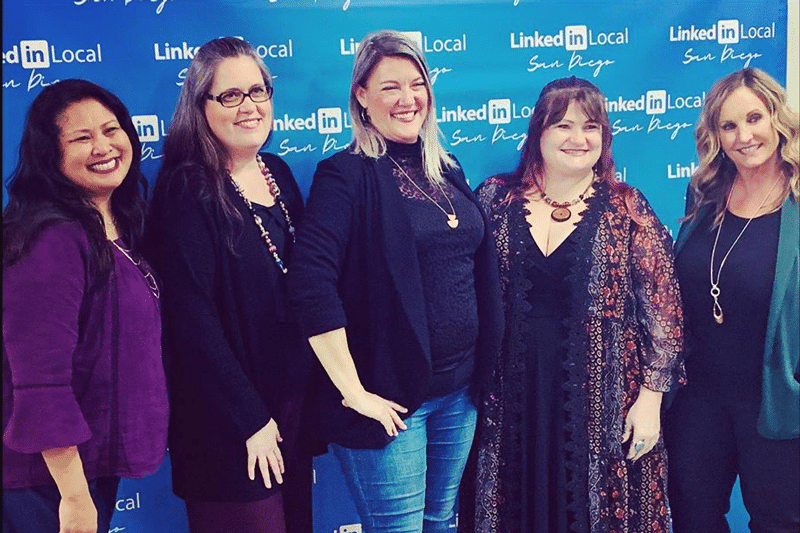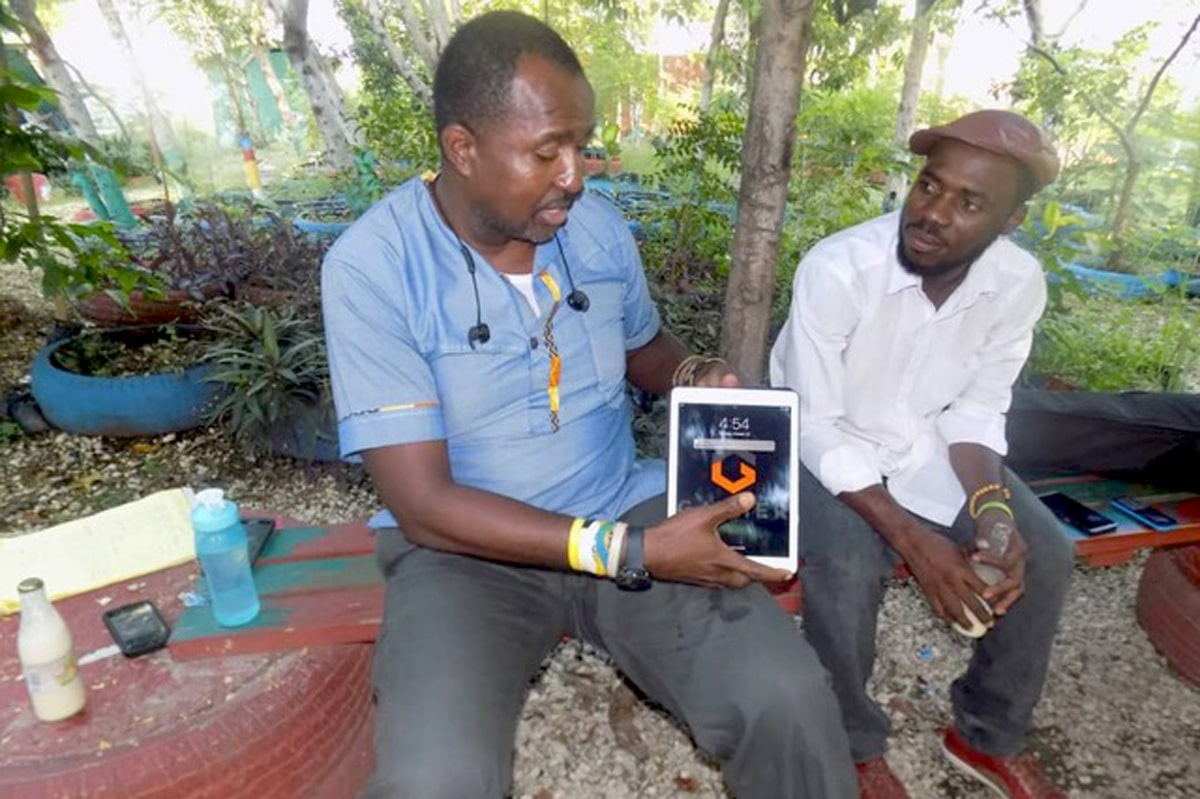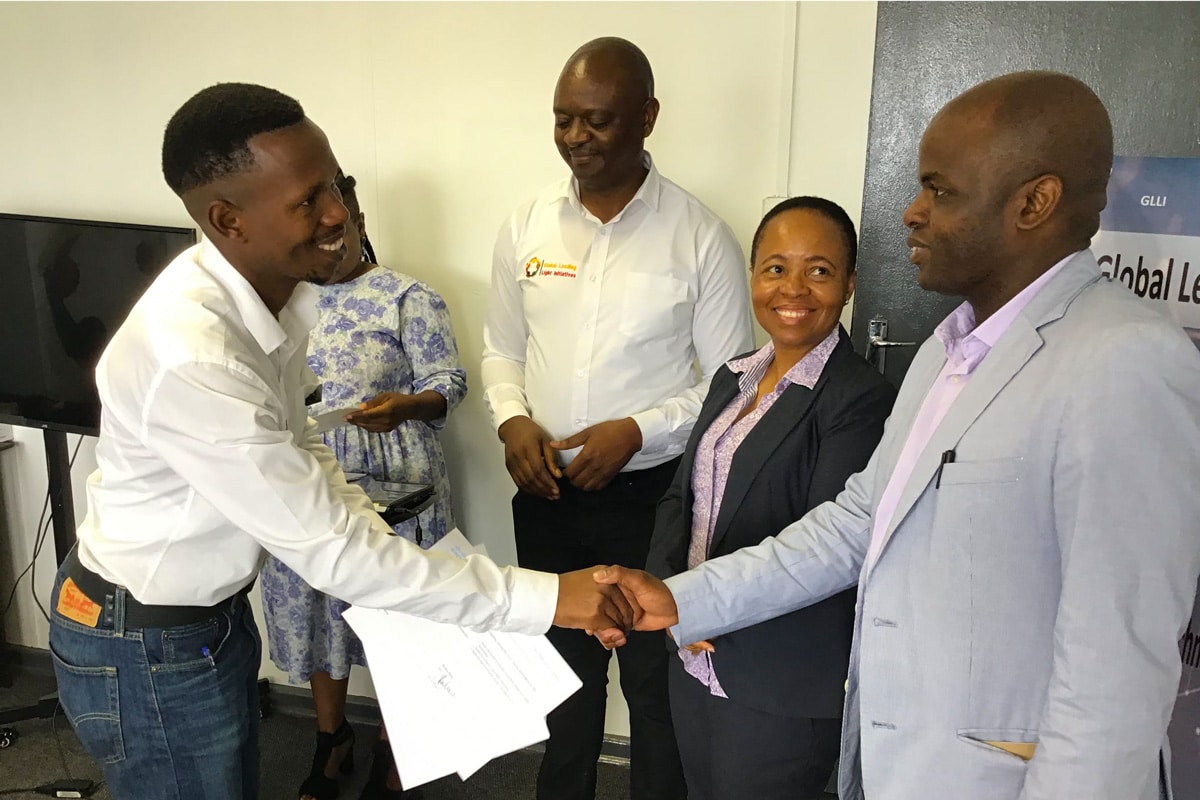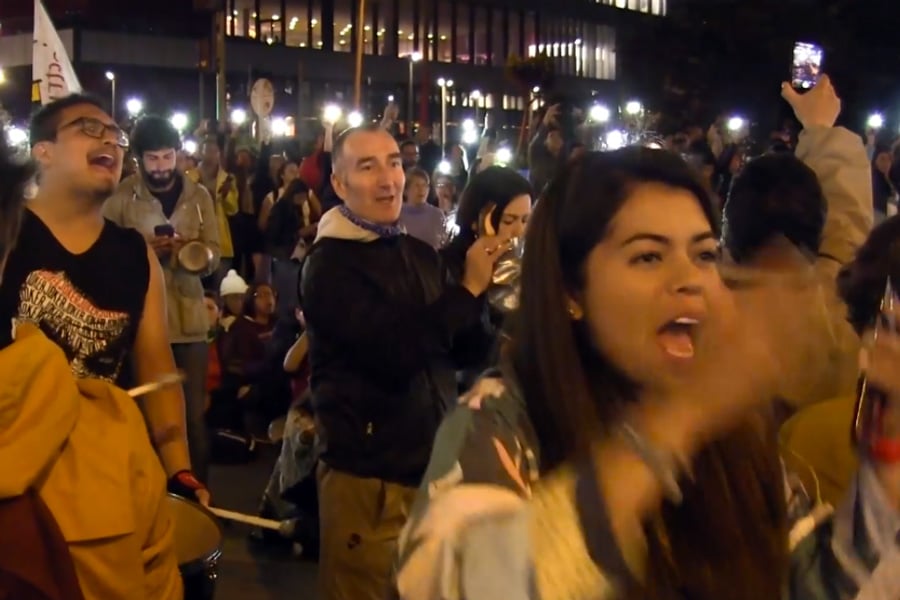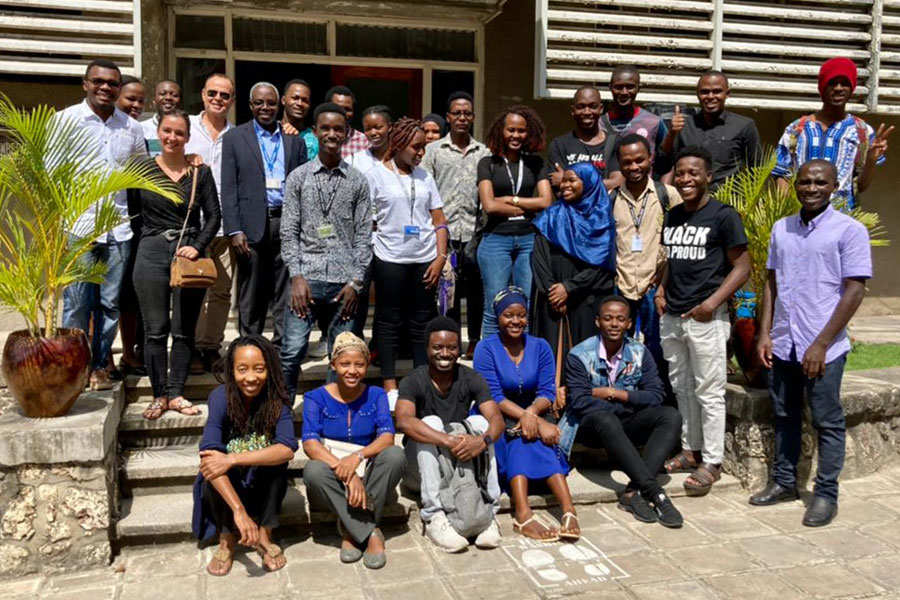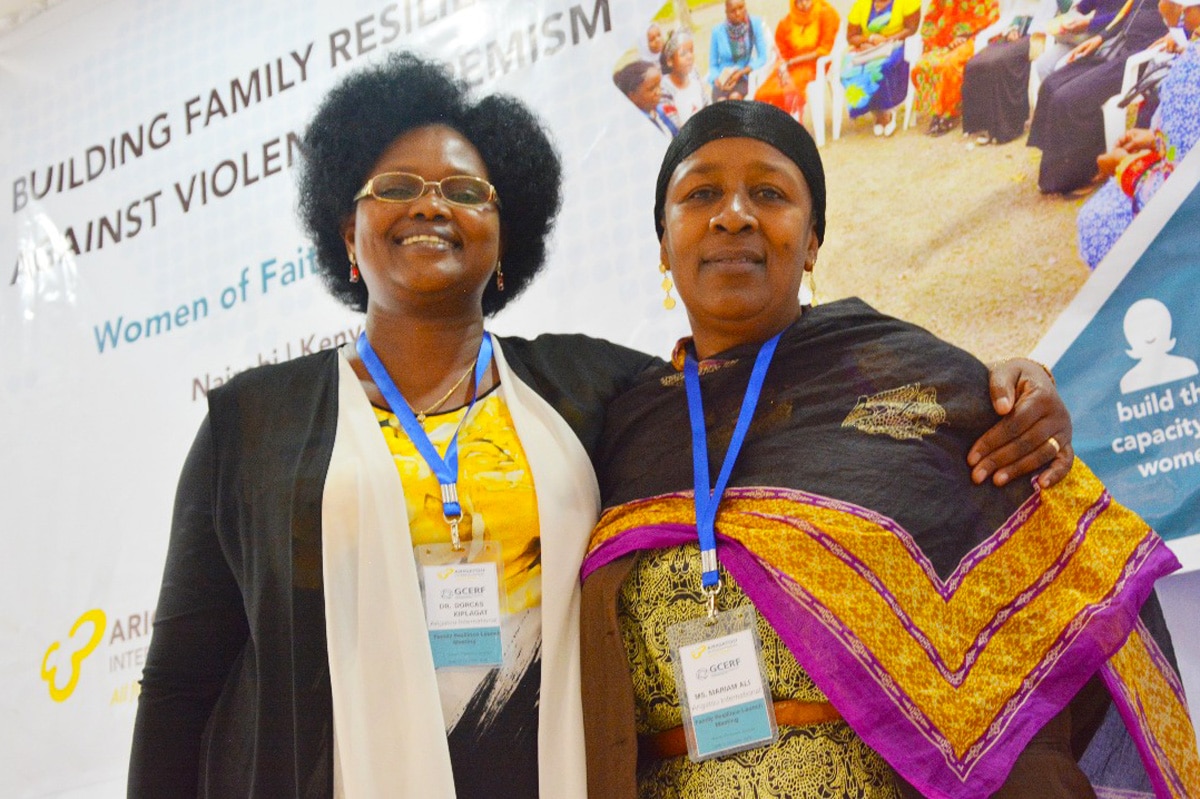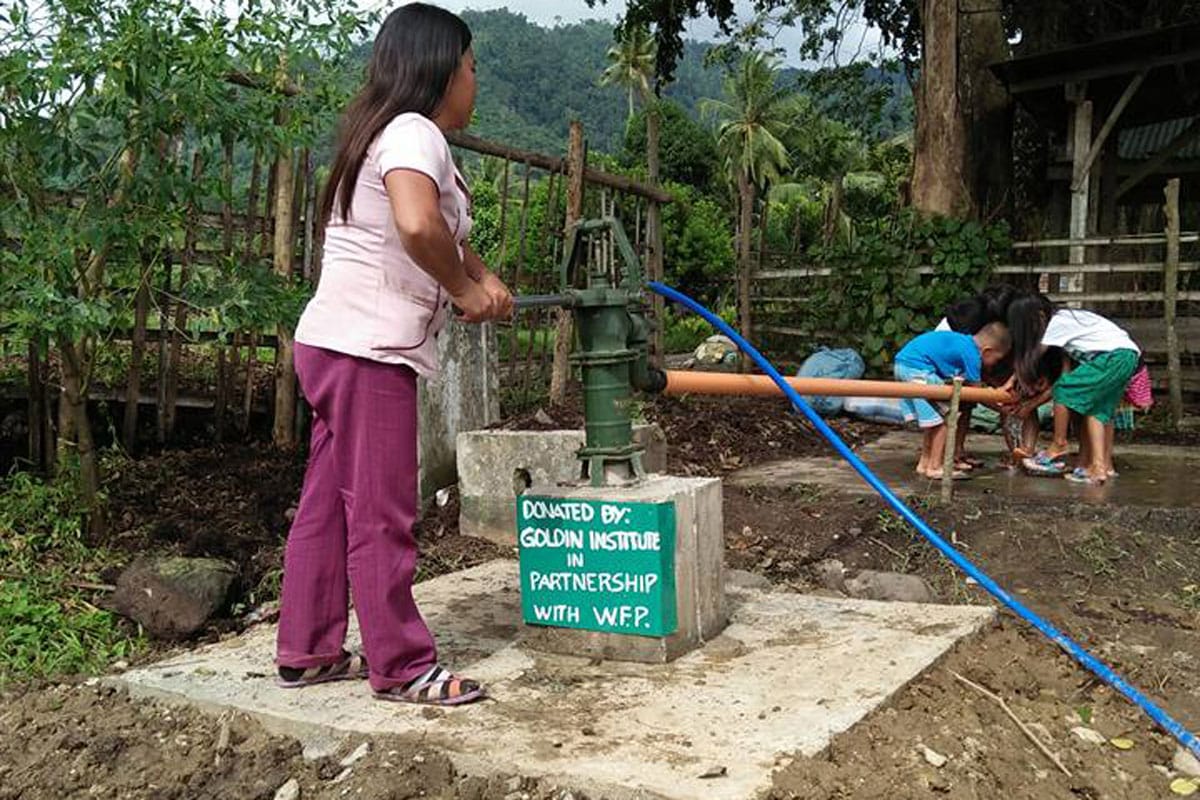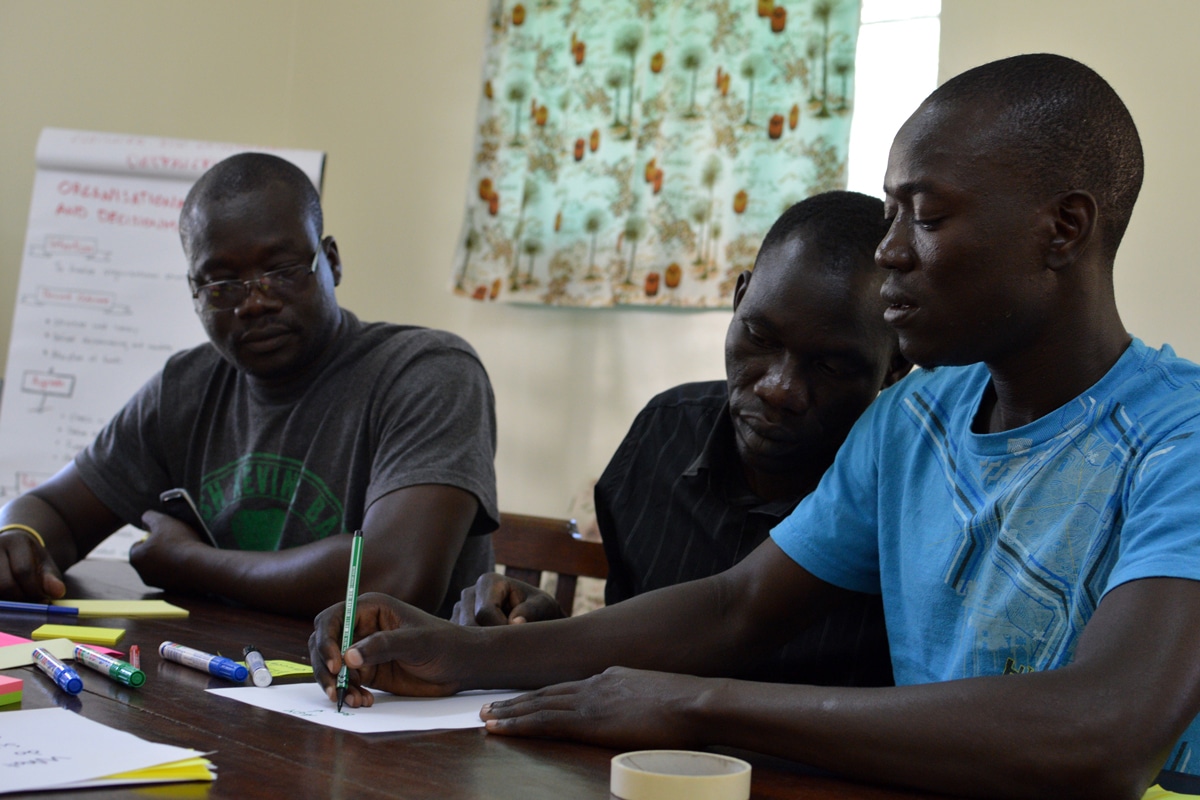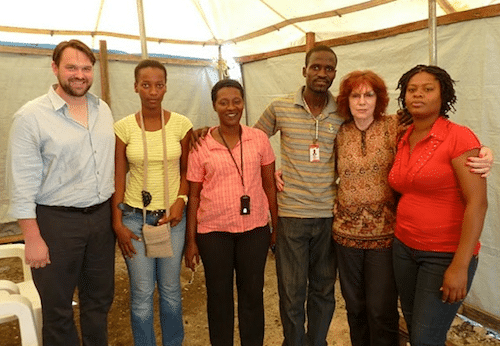SHYNE On You Crazy Diamond
For two weeks starting on January 17, Shyne San Diego—founded and led by Global Gather alumnus Cynthia Austin—partnered with area organizations in the San Diego and Orange County area to mount a first-of-its-kind exhibition on sexual and human trafficking entitled, “Behold Her: Portraits of Survivors of Human Trafficking” at You Belong Here, a co-working and community events space in San Diego.
An exhibit of photographic portraits of trafficking survivors by Amari DixonPhotography, “Behold Her” is the first photo exhibition undertaken by SHYNE. More than 100 people attended the premiere evening, and Cynthia said the highly successful endeavor was the culmination of a long-held dream.

Cynthia supporting Women in Business at the #linkedinlocalsd kick off 2020 event in San Diego hosted on January 31, 2020.
“I knew from the beginning that the survivors’ voices were the key to reshaping the public’s view of then,” she explained.
“The message I believe people took away from the show is hope. Each image represents 1000 victims of trafficking in San Diego every year. These women give hope to those victims as examples of what is possible with community support and a desire for change. Each image also represents a woman giving back to other victims by providing services, work opportunities and resources to assist with healing.
One of the survivors, Jessica, said it best:
"Nothing that has happened to me in the past will hold me back. I am here. I am empowered. I am a new person. I am breaking all stereotypes...Something that somebody else did to me is going to put a label on me? I don't think so! That’s not going to happen. That's not who I am.’”
The city of San Diego, California, ranks eighth-highest in the United States for intensity of Commercial and Sexual Exploitation of Children (CSEC) and drives an estimated $810 million in the underground sex economy.
“My vision for SHYNE in 2020 [is to] continue building the Survivors Business Network, where survivors and businesses with NGOs (non-governmental organizations) work collaboratively to support the women, girls and children who survive trafficking.”
Two days after the exhibit opening, a Survivor Business Pop-Up Boutique was held at You Are Here. The timing of the show was not coincidental, as National Human Trafficking Awareness Month is observed annually each January in the United States.

Cynthia participates in the January 24th Media Symposium: Changing the Narrative/Media Impact on the Human Trafficking Movement hosted by the South Bay Coalition to End Human Trafficking with Amy McClelland Bril and Ana Mony.
Cynthia and SHYNE’s journey began a little over a year ago, and she remains steadfast in her desire to not only provide holistic support to survivors, but also to let “people know that [survivors] get caught in a life of exploitation due to their upbringing, where some form of abuse occurred making them vulnerable to predators.
"When a victim can feel their inherent value and understand it wasn't their fault, that there's nothing wrong with them, there is a turning point in their lives. I hope this work will perhaps help society to stop blaming victims for the suffering they've endured. I hope it gives people empathy, compassion and understanding about exploitation, it's nature and what we are up against with sex trafficking.”
After the show, “Keelin,” a pseudonym for one of the women whose portraits was hung as part of the exhibition, wrote to Cynthia. Eerily, the exhibition was on the same street where she’d been first sold for sex by the individual who trafficked her. "You have helped me share my voice and my story and it means the world to me,” Keelin wrote to Cynthia. “I will always cherish our friendship and will support you in any way I can."
Thank you to those who stand with Haiti
By Daniel Tillias, Goldin Global Fellow, Haiti
A letter to the Goldin Institute's global network of champions for community driven social change on the 10th Anniversary of the earthquake in Haiti
Thank you for keeping your promise.
After the earthquake, ten years ago, a lot of promises were made. I remember people saying that out of this terrible tragedy a new way of doing things, a true solidarity with Haitians, would emerge. They said we would “build back better.”

But too often and so unfortunate this did not happen. Only a tiny percentage of the resources pouring into Haiti after the earthquake went to grassroots Haitian-led groups like SAKALA, the people who were in the best position to know the conditions on the ground. Too often groups like SAKALA were forgotten and we continue to be forgotten by some of the largest donors.
But you did not forget us. Time and again we have treasured not only your support but THE true solidarity – the tougher the times, the more you are there for us.

I am SAKALA, the children in Cite Soleil are SAKALA , you are SAKALA , we are all SAKALA, all together we contribute to the only promise that has been kept, not the charity one but the solidarity one. The one that allows SAKALA to continue being home of the largest urban garden in the country, the hub supporting the largest waste revalorization initiative in the country, the place where butterfly, dragonfly and birds to share with the children there the hope they can fly and will.

Thank you for this solidarity, thank you for inspiring such a difference in Cite Soleil my home town. Happy New Year of continuing effort making the New beginning of Haiti happening in Cite Soleil.
Be the change!
Daniel
South African Acceleration Summit Update
By Dieudonne Allo, Goldin Global Fellow, South Africa
Dear All,
Our Acceleration Summit was a remarkable success. I am writing to share a few highlights and pictures of the event.

The head of CSI of IDC (our current donor) IDC’s portfolio manager, IDC’s Mthatha-based staff, representatives of the local municipality, Small Enterprise Development Agency (Seda), National Youth Development Agency (NYDA), Boston College, New and Old Board members, staff, volunteers, beneficiaries, a few of their parents and a student from our Student Innovation Lab made up the list of participants. A representative of the Daily Dispatch Newspaper was also present.
During the summit, certificates (cisco-accredited) were awarded to beneficiaries of the project, as well as in-kind start-up capital in the form of hand tools.
Each beneficiary highlight their LL-Tech Academy journey, presented their businesses and made an ask. A student from our school programme, the Student Innovation Lab, presented a game she created which is helping students improve their pass marks in economics. Her idea started at a Design Thinking session last year which GLLI organised during the student innovation winter school. We (Zona and I) presented an overview of the LL-Tech Academy and our plans for the future, which includes the construction of an Open Innovation Hub in Mthatha.

The NYDA representative offered to sponsor each of their businesses with amounts ranging from R55,000 to R200,000. They will go through a formal application process to get these grants from January.
The IDC were upbeat about GLLI’s professionalism, creativity, accountability, ability to deliver and the LL-Tech Academy model. They requested that GLLI and IDC start discussing the post pilot project as soon as possible.
Gratitude to our Board Members for your support. Special thanks to Mr Dyeyi who was our Programme Director, Mr Wopula, who welcomed our guests on behalf of the Board and Mr Sejosengoe and Mrs Mabija who handed our symbolic gifts to the visitors. Special thanks to Sharon Ries, who accompanied me to IDC to discuss our proposal last year and helped with parts of the proposal. Thank you all for your words of support, even to those who couldn’t make it to the summit in person. I cannot thank you all enough.

Due to the success of this summit, we plan to make the Acceleration Summit on rural tech entrepreneurship an annual regional/provincial event, which we plan to co-organise with IDC. It will be a Launchpad for grassroots technology entrepreneurship in the Eastern Cape (and eventually nationally) and catalyse growth in the tech economy of the province. I will have a chat with Travis Rejman, Jimmie Briggs and Cynthia Auston, our US-based advisory members to explore the possibility of involving U.S acceleration partners who may want to join us next year at the summit.
Best,
Allo
Colombia Protests Inequality
By Lissette Mateus Roa, Co-Facilitator, Global Alumni Network
Colombia is the third most unequal country in the world, and the gap is growing. That is what is causing the latest mass protests in the country.
Colombians no longer care about FARC guerrillas, they no longer protest nor fear this group that signed a peace agreement with President Santos 3 years ago. Now, Colombians have turned their eyes to the real problems that afflict the nation; a health care system that does not work, little chance of education, inequality, impunity and especially corruption. Above all, it is the corruption of politicians that keeps the country in a precarious state because the money that should be available for the benefit of a country is stolen by a few and the government persists in benefiting those few.

President Iván Duque, who was the candidate of the former president and now-Senator Álvaro Uribe Vélez, has neglected the peace agreements, has not complied with them, and instead has allowed new illegal groups in the country to start arming again to fight for routes of drug trafficking and land. Because of that, there are newly displaced people and new massacres again. In addition, due to the tax reforms that Ivan Duque is presenting before the congress and a new law lead by the political party of former President Álvaro Uribe, he has shown that it is a government that aims to favor the richest, widening the gap of inequality in the country.
There are specific requirements that are being presented to the government and for which the huge protest marches began on November 21, 2019:
- Reduction of war budget, which is larger than the health budget even though the FARC no longer exists.
- More budget for higher education, because only 10% of young lower social class students enter the university and only 48% of those are from official schools.
- That the government complies with the peace agreements, and stops the killing of demobilized people. Already 130 have been killed in the last 2 years.
- That the government stop the genocide of indigenous people and systematic murder of social leaders in the country. 134 indigenous people and more than 400 social leaders have been killed during the government of Iván Duque.
- That the government stop widening inequality gaps. That it desist in the tax reform (called the package), which raises taxes for the middle classes and lowers the taxes of large companies. It could reduce the salary of young people under 25 years old to 75% of the current minimum, eliminate the pension funds, and left with precarious work to the independent ones that are around 40% of the country workers.
To understand this reform a little more, along with the new law, it is important to know that in Colombia, 1 hour of work is paid 1 dollar, and the minimum salary is 236 dollars per month, but a congressperson in Colombia is paid 9,531 dollars per month, this means 40 time more than a minimum salary. The law proposed by the government pretends to make a flexible minimum salary, and have young people working per hours, or part time, which is going to be cheaper for employers, but precarious for workers who would have monthly salaries of less than 236 dollars. The government said it is a way to have more jobs for unemployed people who currently are 10% of population. Apart from that, they said they will reduce from 48 to 45 hours a week of work, but this is going to leave workers without two days a year in payment, which they used to have for having time with their families and without 2 extra hours a week of recreation. Moreover, workers won’t have Sunday as their rest day, but it could be any day of the week, even if they would not have time with their families because their day of rest does not match with their families’. And they won’t have payment for holidays either.
On the top of that, with the tax reform, the government wants that independent workers, which in Colombia is half of the workforce (about 11,800,000 people), pay 19% in taxes over their salary, knowing that they already pay about 21% of their salary in VAT and payments of health and pensions. Meaning that if an independent worker has a monthly income of 3,000, they should pay about 40% of their salary in taxes, VAT, and parafiscal contributions. While this happened with independent workers, the big enterprises will have a reduction in their tax payments from 33% to 30%, which will amount to a little bit more than 2 and a half billion dollars, which is double the budget for the country's university education, if we want to compare it. Another proposed law states that if companies hire young people less than 28 years old, they would have a 120% deduction on payments. In this sense, under this reform, along with the before mentioned proposed law, companies could hire people for less payment and less obligation, and they would have more deductions. What a great government for big companies!
Apart from that, the products already have a 19% VAT. For example, one gallon of petrol costs 2.60 dollars. All of this is going to widen the inequality gap and will make the rich richer, the middle classes unable to obtain more, and the poorest even poorer.
Despite all of the above, the government says it does not understand why citizens want to protest. For this reason, since the first march on the 21st, police and ESMAD (Mobile Riot Squadron) forces were deployed during the peaceful marches during the day. Because of that, citizens started a “Cacerolazo” from home, a form of protest in Latin America in which pots with spoons are beaten to make the government feel that the protestors are not vandals but an entire nation from their homes protesting peacefully. This sound was heard and spread throughout all neighborhoods and cities in Colombia.
To give you a sense of what these peacedful, if noisy, protests looked like, please watch this video taken at the street level and this video showing an overhead view.
On November 22 again there were marches and there were riots in different parts of the city (see video here). In the evening, President Ivan Duque decided to generate a general curfew in Bogotá and militarize the city. Somehow, a panic campaign was created – we still don’t known by whom it was orchestrated – through social networks, calls, and people entering residential complexes. It was said that they were going to destroy houses and that they were going to steal. It was a night of panic for the entire Bogota City. The next day, the mayor of the city said that all the alert calls were a lie and that it had been a dark campaign to generate chaos in the city.
After that night, many were afraid to go out and march. However, the marches continued on November 23, and in the afternoon hours, Dylan Cruz, 18 years old, was shot in the head by the ESMAD. Dylan was about to receive his high school grade on November 25, but instead, due to the impact, his body did not resist any more, and he died on his graduation day.
Despite all these marches and events going on, the president had said in his speeches he wanted to establish a dialogue. Last week, in the middle of the strike, the president passed the tax reform to the congress, and it was approved in the first plenary. The aforementioned law was also approved. In addition, the housing subsidy for the middle class was removed, and a law was passed to the congress so that the ESMAD could have more riot weapons. And the cherry on the cake was a law called Andrés Felipe Arias, named for a former minister of agriculture of prior President Álvaro Uribe, who was accused of giving land that should be for the poor to the rich, a scheme from which Alvaro Uribe Velez himself benefited. Andrés Felipe Arias was imprisoned in the United States and found guilty, as he was found guilty in Colombia. However, this law will allow him and many other corrupt individuals out of jails or house arrest and shorten their sentences.
Faced with this mockery and interweaving of laws and reforms to benefit a few, Colombians have not stopped marching.
Last Sunday, December 8, a march was called, that was supported by artists and was massive. The marches and protest will continue, but the government does not want to listen.
So, in this moment, we ask for international support for Colombian people. As Desmond Tutu said, “if you are neutral in situations of injustice, you have chosen the side of the oppressor.”
The Polar Bear Talks: tales of an epic trek from Africa to the Arctic

The First Chapter
My Arctic voyage this past June strikes me to be a dream like sensation, more than 4 months later and I am still dreaming a variation of the same tale – humanity on the edge! For nearly a year, I dreamt, attempted, gave up, whined, and eventually buried the hatchet and acted –succeeding to raise enough to afford the expedition. To go and learn (with all my senses, I technically mean it: all senses) about climate change ramifications, and to return home with an insight for actions I can take to save my local planet. An experience that recounts in the most surreal manner to me!
My journey was led by Sir Robert Swan, founder of the 2041 foundation, environmentalist and polar explorer, the first person to walk on both poles, together with other, amazing individuals from 27 countries.
I was the only Tanzanian and the only participant coming from Africa!!!
The trip was so rich with the right information about climate change, its impact and solutions –at both micro and macro levels. The leadership on the Edge training by a notable coach from New York and guest speakers from the National Geographic team - naturalists, scientists and educators - were equally superb.
Coming back home felt a little strange. I missed the freshness of the Arctic air, the all-time midday sunlight, polar bears, whales, birds and the ice. I also missed the daily dose of yoga and meditation.
Climate change does not cause global warming, per se. It is highly connected to social justice in general. Poor communities are experiencing the impact far more than wealthy communities. But that's only part of the story. The other part of the story is that at-risk poor communities are resilient beyond belief and from them so much can be learned about mitigation and adaptation.
With this nexus of Climate change and social justice, I am working to bring a convenient solution by establishing a sustainability learning center targeting young influencers.
I’ll have more to say about the actual journey in future chapters, and there are some videos of the trip below, but it was important for me to issue a note of gratitude first.
One of the most important persons who made my journey possible is Dr. Jane Goodall. One evening, as she and her colleague Dr. Anthony visited Dar Es Salaam, we sat on the porch of her house. Among our many discourses, I asked if she knew Sir Robert Swan. Of course, Dr. Goodall responded, “Yes.” She continued speaking highly of Swan’s mission to shape the next generation of youth by taking them to the Antarctic. I retorted, “By the way, I have applied to go on their first expedition to the top of the world, but I doubt if I can successfully raise required funds.” She looked at me and said, “I can help you with a recommendation letter.” That moment, my heart smiled and part of me knew that I was destined to go.
Of course, this could not happen with a recommendation letter alone, I had to work 16 to 18 hours every day in May this year, getting past all criticism and shame for not having started fundraising much earlier when I had time. I had quit my job at this time and I had all the time I needed to logically deal with such heartbreaking criticisms, strategically manage my time and resources to ensure I reach out to everyone I knew to have their heart at the right place (whatever this might mean at the time) and it worked.
The lesson, I think, is this: “Perhaps, to encourage successfully applicants (of educational opportunities) to also cover their costs and provide them with professional fundraising guidance, is (more than anything else) to help them become more attentive, engaged, intellectually critical and useful in their communities after the program.”
I will share another chapter in this unfolding story soon, but in the meantime, please watch the short videos below to learn more:
The First Chapter by Kyle O'Donoghue
Just 600 miles from the North Pole, Sir Robert Swan interviews Yusuph about his concept of a sustainability center in Tanzania. “You’re going to address this whole thing of people and animals in the wilderness. It’s going to be a practical thing,” Sir Swan said. “People in this world don’t need to be talked at - they need to be shown solutions and I’m so proud of you.”
Arctic Expedition: Recruiting the Next Generation of Climate Activists by Madeleine Ptacin
Yusuph’s polar plunge experience by Trent Benson
Best of all, click above to watch take a dip in the cold blue waters of the arctic.
Women of Faith Building Resilience in Kenya
GATHER alumnus Mariam Ali Famau in Kenya recently announced the launch of a new program that will play an important role stopping the recruitment of young women for terrorist organizations and planting the seeds for long-term prosperity in one of the world’s most impoverished areas.

Working closely with Dr. Dorcas Kiplagat and Arigatou International, longtime partners of the Goldin Institute, Mariam launched the new initiative, called Women of Faith in Action: Building Family Resilience, for women ages 18-35. The program will empower its participants to teach others and amplify its effects to a broader population.
Interviewed just a few days before the program’s launch, an excited Mariam said:
Soon the program will start and we shall have 100 to 110 women participating. They will be trained and they will go back to the community and train children from age of 18 and below. First we shall have a stake holders forum and then the selected women will be trained, and after the training, we shall have a sustainable IGA (income generating activity) community support program.
Mariam lives and works in Majengo, an impoverished but resilient community on the outskirts of Nairobi, and designed Women of Faith in Action for single women who are influential in their communities, both Muslims and Christians, the majority from the Swahili-speaking community. Most of the women in this area have no income or prospect of gainful employment, sustaining themselves by selling second hand clothes or snacks at a market place, a state of desperation that leaves them vulnerable to radicalization and recruitment for terror organizations based in Somalia across the border. Although the organizations based in Somalia are ostensibly Islamist, Mariam explained that Christians as well as Muslims are at risk for radicalization because of their dire poverty.

A single mother with three children – two girls and one boy – Mariam is proud that she is launching these programs in her mid-50s. She traces her work as an advocate back to 1984, after she left a position at Kenya Post and Telecommunications due to the harassment of her supervisor. She started a community training program sponsored by DANIDA, a Danish organization, received support from Action Aid Kenya for other initiatives, and founded the Peaceful Innovative Organization. She empowered her participants by teaching them about women’s rights and children’s rights and how to operate small-scale businesses such as detergent-making, clothes washing and housekeeping. Her organization helped women build community toilets, essential in areas where most homes have no indoor plumbing and a service for which the women can charge fees.

For Women of Faith in Action: Building Family Resilience, Mariam plans to buy washing machines for cars and clothes as well as containers to be used for garbage collection, to create enterprises that will allow participants will be paid weekly. Participants will also learn proposal writing skills to further enable their prosperity. In addition to the 100 women participants, Mariam will include 20 teachers in the program as well. Mariam held the first planning meeting for the program on June 10.
After the participants complete the program, Mariam expects them to go back to their communities, their madrassas and schools, to help other young women.
We want to train them how we can all live in harmony. We are trying to sing the same gospel together.-- Mariam Ali Famau
Philippines Water Project Reaches 40,000 students!
Working within a coalition of members in civil society, non-governmental organizations, the military, armed guerillas and parents, Susana and her team overcame persistent challenges which still remain moving forward.
A joint report released this month from the World Health Organization (WHO) and Unicef shows sobering numbers for safe drinking water access in the Philippines. According to the numbers released, 7.5 million Filipinos are without access to sanitary toilets, while 8.4 million do not have a supply of clean drinking water.
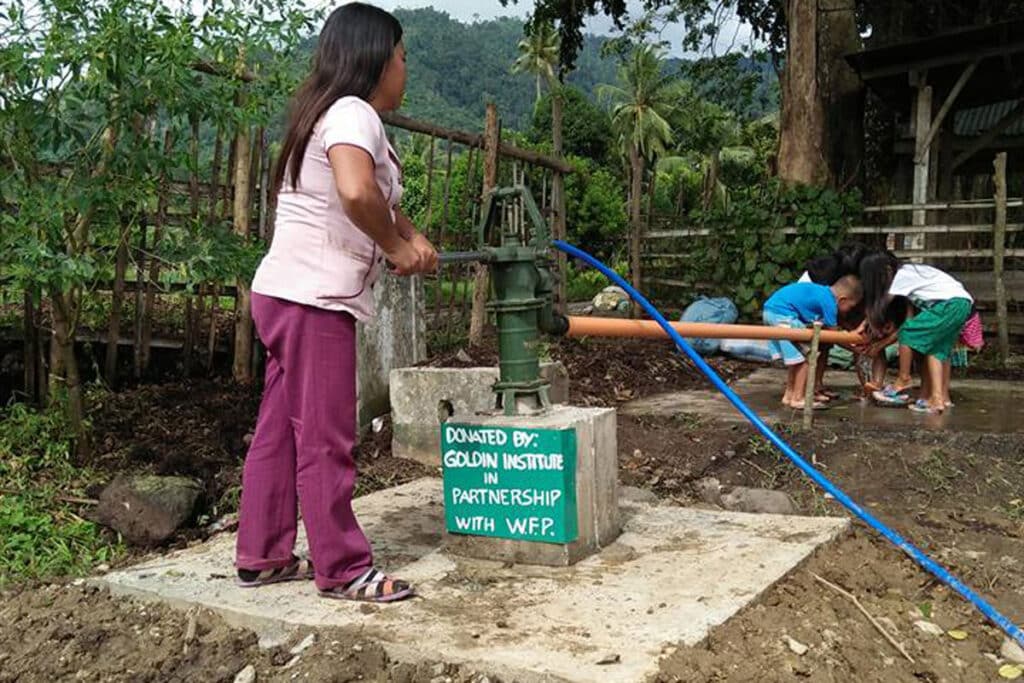
A local insurgency in Marawi City in the neighboring province of Lanao del Sur exploded when foreign fighters affiliated with the so-called Islamic State joined the fight and prompted a massive response from the Philippine Armed Forces this summer, including the imposition of martial law. When the conflict spread to nearby Maguindanao, the military stepped up its activities there as well. The conflict has literally come close to home for Susana on several occasions, as in September, when improvised explosive devices were detonated on a road she uses occasionally, wounding four people. Nevertheless, she has deftly navigated the political, economic and social hazards, collaborating constructively with all sides to provide tangible benefits to communities wracked by warfare and poverty.
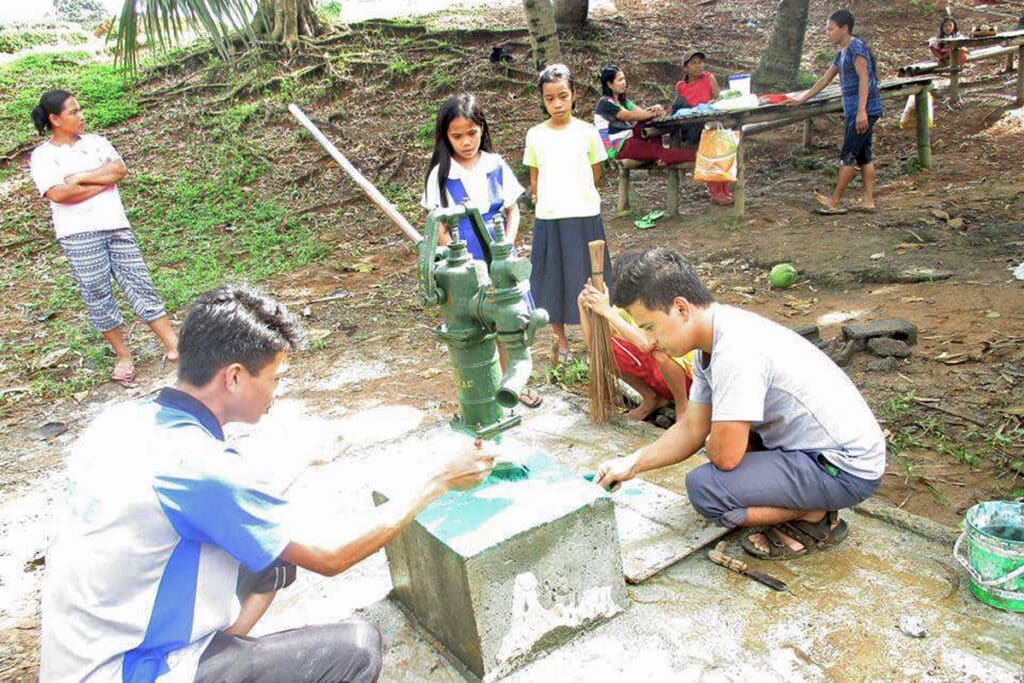
To install the water pumps, Susana works closely with military officials who have the heavy machines they need and with the rebel groups who control the territory where some of the schools are located. The Goldin Institute has been working with Susana since 2011, providing her with financial resources and opportunities to meet with grassroots leaders from around the world. This training enhanced her leadership skills and reputation, and ultimately prepared her to serve as her community’s representative in an ongoing peace process. Late last year, Susana was appointed a commissioner of the 21-member Bangsamoro Transition Commission, which includes members of the Moro Islamic Liberation Front as well as the government and is dedicated to obviating further outbreaks of violence and ultimately establishing stability throughout the region.
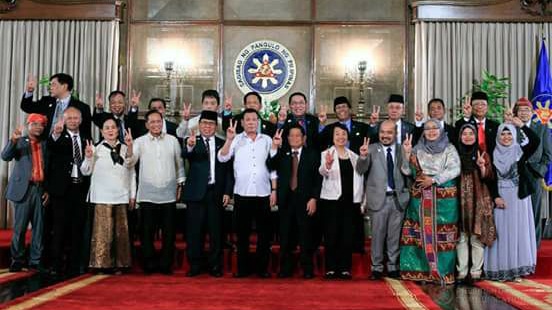
"It is summertime here in our region," Susana explained, "and our students are on vacation through the end of May. We are also dealing with flooding and as well as peace and security challenges. There are military operations happening in the areas we’ve targeted for water pump installation, as the national government is waging war under martial law."
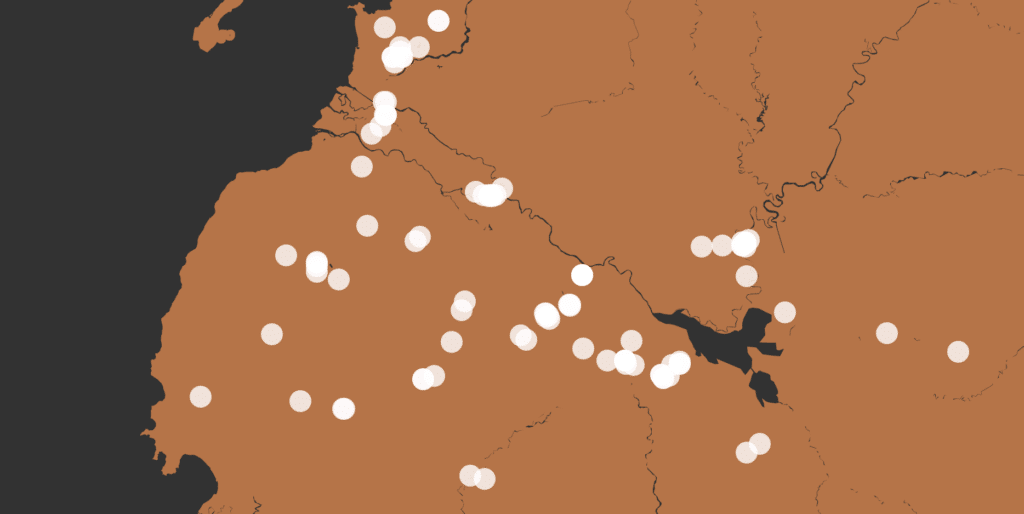
Even amidst these difficulties, progress continues as our partners have recently installed four more units, including one in a community where Muslims and Christians living and working together.
In addition to leading these water pump installation efforts, Susana has been chosen by these communities to be a representative in the national peace process since her appointment late last year as a commissioner of the Bangsamoro Transition Commission.'
This milestone was complemented by another historic moment in the project with the announcement of a $20,000 grant from the Lush Cosmetics Charitable Foundation.
Former Child Soldiers in Uganda take the Lead
by Jimmie Briggs, Goldin Institute Board of Advisors
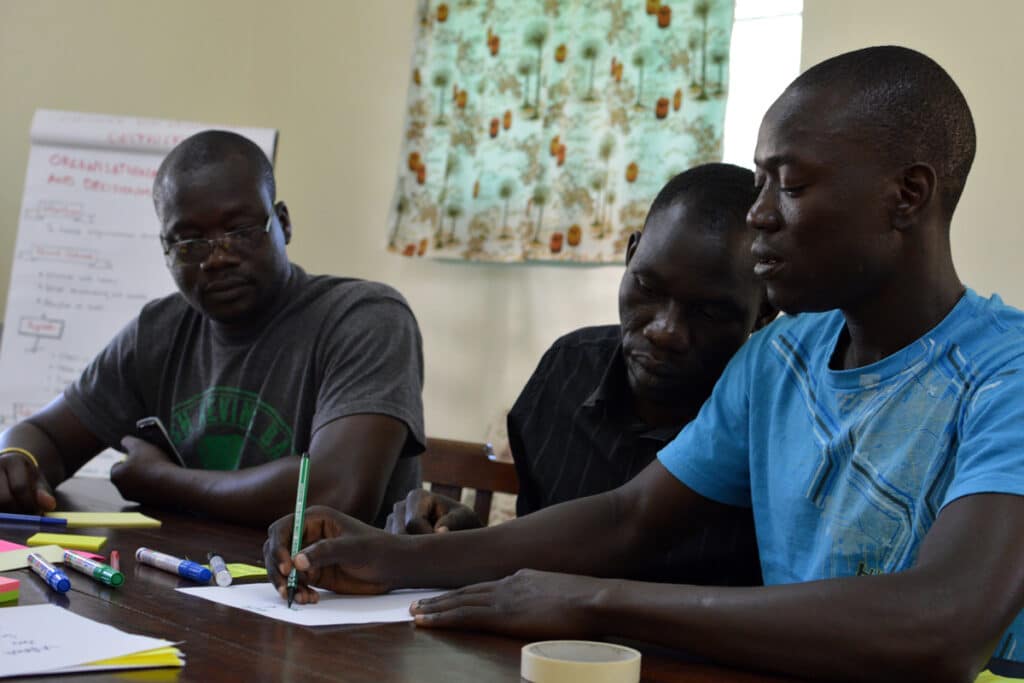
For nearly three decades starting in the late 1980’s, over 60,000 girls and boys in Northern Uganda were forcibly conscripted into fighting a guerilla war against their government, under the brutal domination of the Lord’s Resistance Army. In war that displaced 1.5 million people mainly of the Acholi ethnic group from communities such as Gulu and Kitgum, as well as the areas surrounding them, children bore an overwhelming weight not only as combatants, but also in carrying a stigma which has typically left them marginalized and overlooked as young adults today.
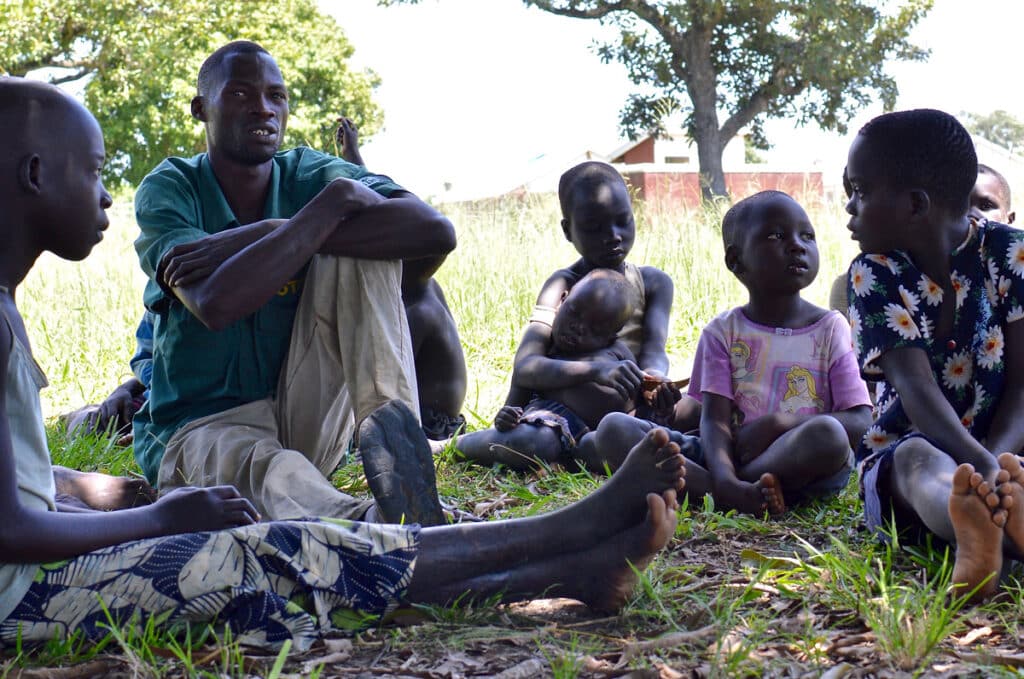
YOLRED, or the “Youth Leaders for Restoration and Development,” aims to address the challenges endured by former combatants with a key distinction which separates it from other well-meaning NGOs (non-governmental organizations) both local and international: YOLRED was founded by formerly abducted child soldiers to serve other young adults with the same shared experience. It is the only group of its kind to be designed, founded and led by members of the community which it serves.
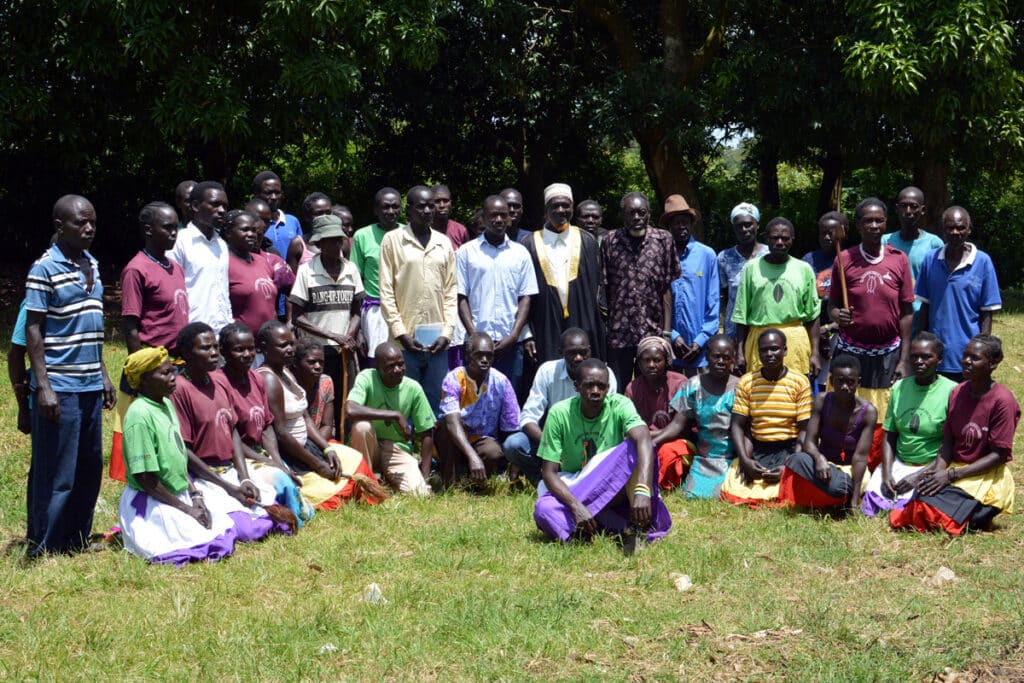
Its origins come out of mobilization of just under 200 former combatants from across Northern Uganda to capture and document oral testimony about their respective experiences in the civil war. Through a partnership with the Goldin Institute and local supporters, the core team of YOLRED led the effort to collect over 150 peer-to-peer interviews with former abductees about their experiences and insights.
Not unlike child soldiers in other countries who are undergoing the formal DDR (Disarmament, Demobilization and Reintegration) process without long-term support, many of those individuals who participated in the story collection project recounted being stigmatized, left homeless and struggling in poverty. The Goldin Institute in partnership with Arigatou International and Cartitas Counseling Training Institute worked with regional Ugandan leaders to support these child soldiers to assume agency and leadership over their own destinies.
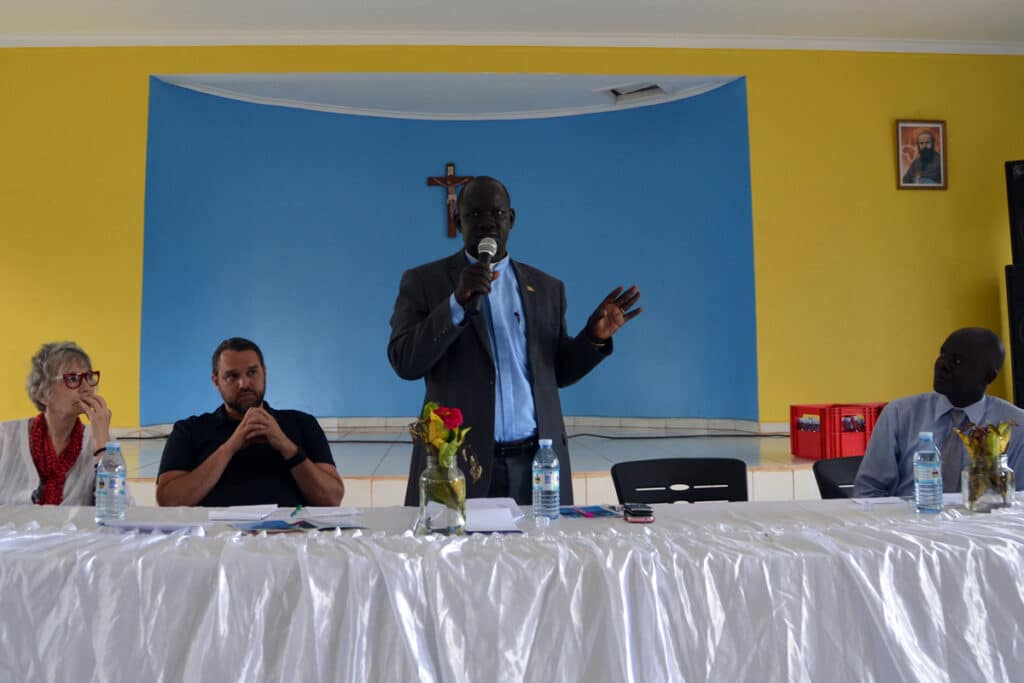
Equipped with this knowledge and the sense of solidarity developed through the research process, these community researchers produced the “Alone and Frightened” report to restore these voices to the conversation about reintegration and laid the foundation for an organization dedicated to achieving the aspirations of former combatants.
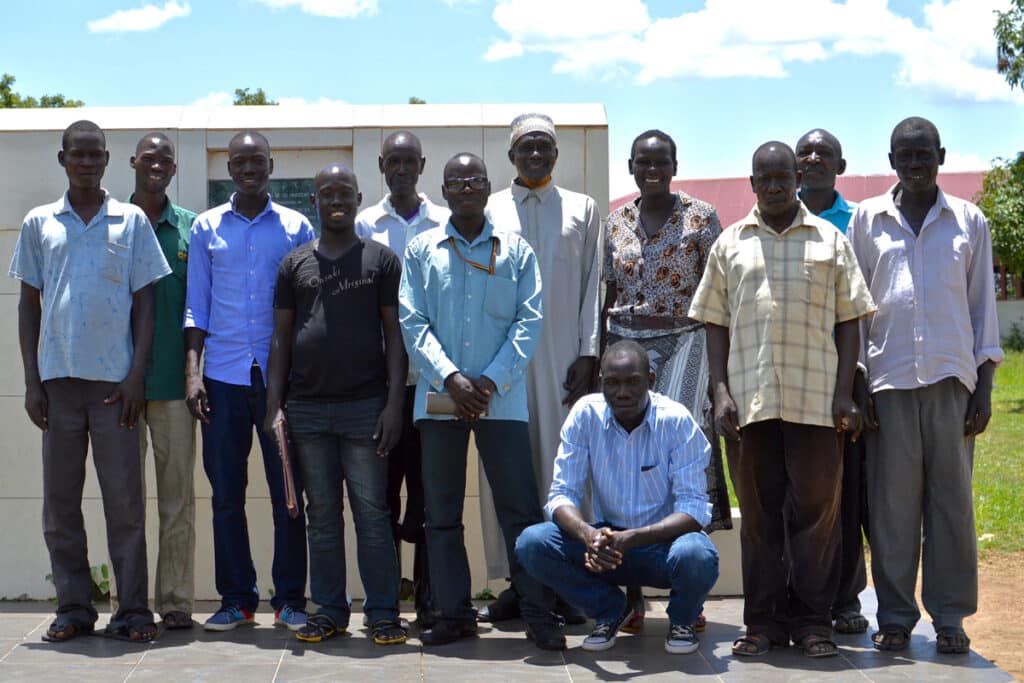
In a ceremony attended by partners from the Goldin Institute and a wide range of local partners, YOLRED was officially launched on August 27, 2016 in Gulu after years of careful planning, listening and outreach. YOLRED’s five co-founders – Geoffrey, Charles, Janet, David and Collins -- seek to support all young people who were impacted by the civil war, including ex-child soldiers, abductees, the displaced, the children of former abductees and child mothers throughout Northern Uganda. Indicators of well-being including health, education, employment and livelihood, as well as peace and security. The team is actively restoring the communities that were torn apart by the conflict and taking steps to prevent the abduction of children into conflict in the future.
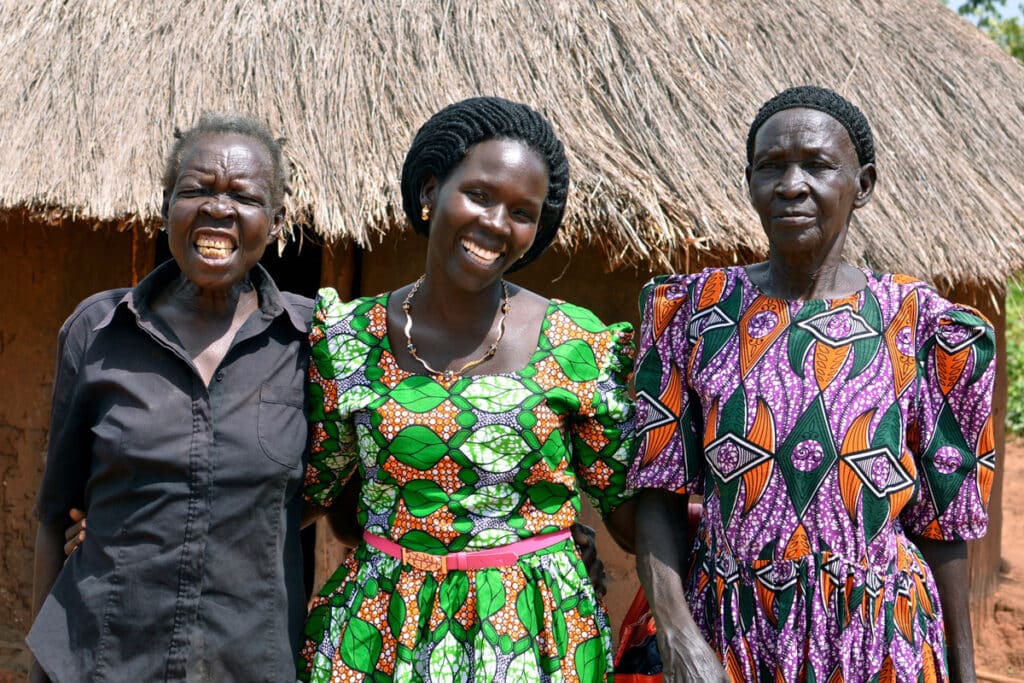
In preparing for the launch of YOLRED, the team partnered with the Goldin Institute, Arigatou International and Anorak who worked with YOLRED’s leadership to develop a five-year plan detailing its organizational structure and its primary initiatives including reconciliation, entrepreneurship and agriculture.
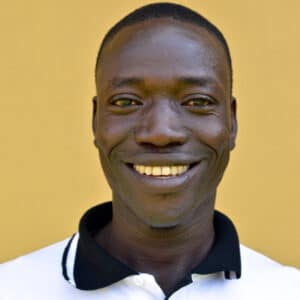
"I am happy for Youth Leaders for Restoration and Development, as a platform for former child soldiers. As a leader of the organization, I will [help] ensure that our problems and the solutions are implemented are locally. The output of this organization must be felt and seen in the communities." -- Geoffrey Omony, Co-Founder, YOLRED
Further, the credit union scheme is not only intended to provide low and no interest loans but also financial literacy for those without bank accounts nor a credit history. Grassoots entrepreneurs will be supported in their start-up efforts and encouraged to be peer mentors to others seeking to create businesses or authentic leadership in civil society and government. YOLRED will be critically evaluating all of its programming at key stages of its development.
Presently, the organization is applying for support from the IDEO Youth Empowerment Challenge, as well as Echoing Green for general operations as well as capacity building.
We invite you to learn more about YOLRED and how to get involved at www.yolred.org.
Rape Accountability and Prevention in Haiti
Executive Summary of the Project
Since the Jan. 12, 2010 earthquake in Haiti, women and girls living in the internally displaced persons camps face alarming rates of rape and other forms of gender-based violence. In many camps, the rate of gender-based violence has exploded to three times pre-earthquake levels. In the year since the earthquake, our partners at KOFAVIV have documented 640 cases of rape in 2010.
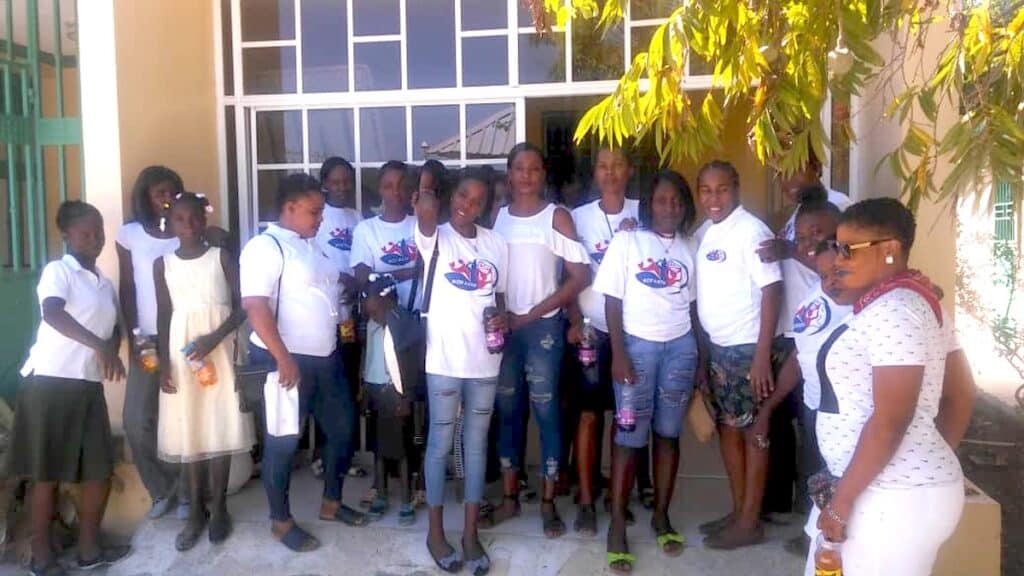
This pilot project is designed to provide security in the Place Petion community of Champ de Mars using women-led, community-based security teams to patrol the camp, discourage and disrupt incidents of gender-based violence and provide necessary escort services to vulnerable residents.
The Goldin Institute has partnered with KOFAVIV, FAVILEK, the Bureau des Avocats Internationaux (BAI), the Institute for Justice and Democracy in Haiti (IJDH) and its network of partners throughout Haiti to build and support a women-led, community-based pilot security platform in one representative displacement camp. This project builds on the strategy developed and implemented by KOFAVIV and FAVILEK, the GI's experience in creating grassroots partnerships for social change and the BAI / IJDH's capacity for legal advocacy in Haiti.
As part of the Rape Accountability and Prevention Project in Haiti, this security platform aims to prevent gender-based violence through the leadership and strategies of women's networks while the work of prosecution is ongoing. This pilot project is designed to serve as a model for community engagement and the provision of security that can be adopted by NGOs and the Government of Haiti.
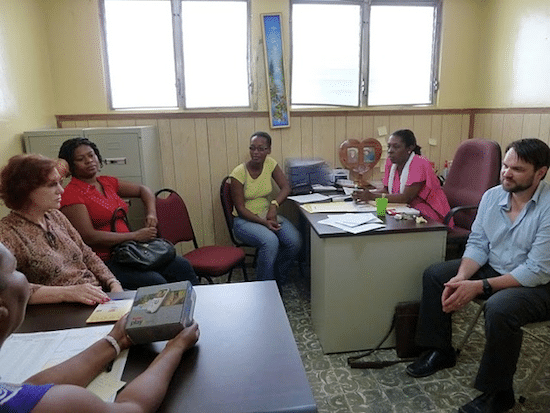
Project Rationale
The problem of GBV in post-earthquake Haiti must be understood within the broader context of the humanitarian response. There is a demonstrated lack of governmental response to sexual violence occurring in the camps. This failure to act appears to have two prongs—the Haitian Government lacks both the political will and the capacity to respond. Furthermore, despite billions of dollars being pledged by the international community for recovery, aid efforts have struggled to meet the basic needs of people living in IDP camps. Having no other options, Haitian grassroots women's groups have resorted to taking charge of their own security. Haitian women are both disproportionately impacted by the crisis and key to their country's recovery.
The reality is that grassroots women's groups have been mostly shut out from the process of crafting a response to the real threat of rapes in the camps. Meanwhile, they have mobilized their own solutions, distributing whistles to women living in camps and organizing groups of women to accompany each other to vulnerable locations like latrines, where many attacks have previously taken place. Each of the women engaged in the project brings a deep commitment to the work, and their life stories are a testament to that dedication.
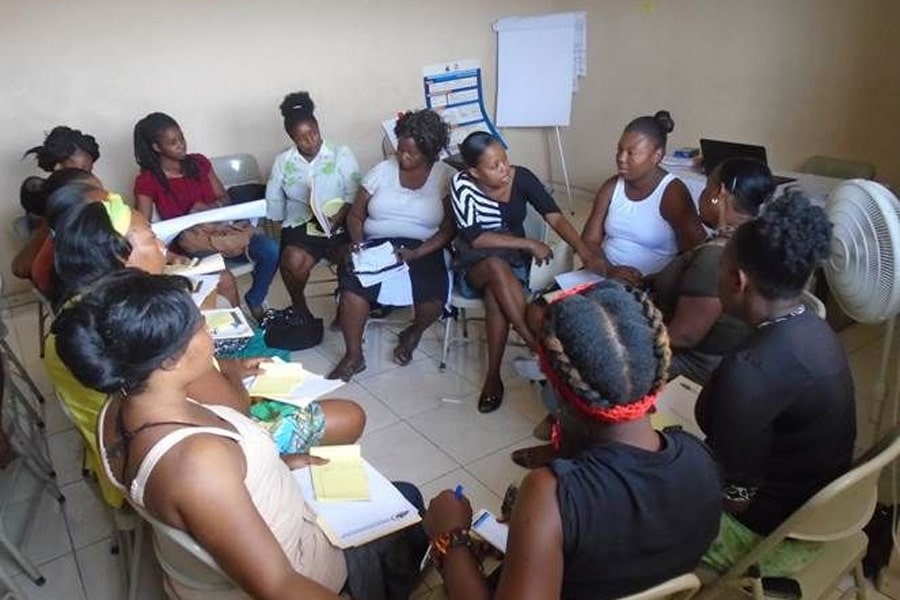
Brief History of the Project
The Haiti Rape Accountability and Prevention Project (RAPP) is designed to respond to the epidemic of rapes against poor women and girls in Haiti in the wake of the Jan. 12, 2010 earthquake. The program includes four closely integrated components: legal advocacy, healthcare, organizing, and public advocacy. RAPP provides individual victims of sexual assault the legal services they need to obtain justice and compensation, while working with allies in Haiti and abroad to transform the social context that underlies the vulnerability of all poor Haitian women to assault. The Project also aims to deter future rape by punishing the perpetrators and forcing a more effective response by law enforcement and the justice system. In February 2011, the Goldin Institute began its association with RAPP with the Camp Security and Sensitization Project.
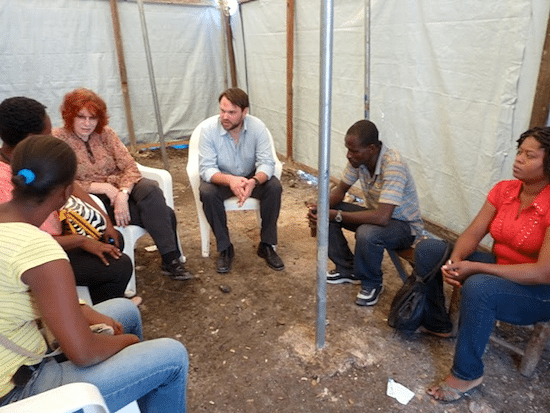
Shared Goals of the Project
This project seeks to substantially improve security and bring an end to gender-based violence in the camp where it is piloted in the Place Petion section of Champ de Mars. In addition to the immediate impact of improved security, we hope that it will provide some meaningful work for security providers and highlight the efficacy of partnering with community based groups, especially those led by women. We hope that this project will serve as a model for the Government of Haiti and relevant NGOs that will be able to scale up this important women-led, community-based initiative.
If successful, this project may also serve as a model for similar grassroots partnerships within the Goldin Institute's global network.
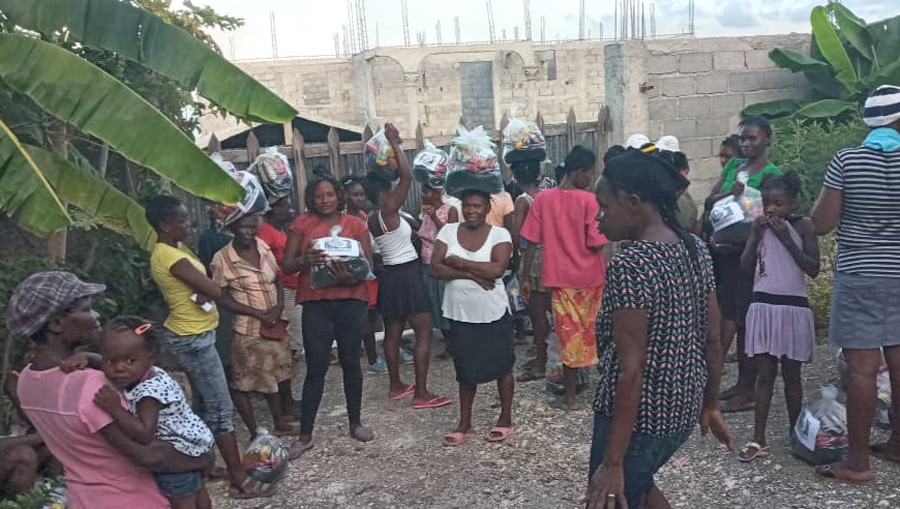
Project Outcomes
- Immediate and sustained reduction in gender-based violence in Champ de Mars.
- Improved sense of security for vulnerable people in Champ de Mars.
- Opportunity for women to design, lead and implement an innovative community based initiative.
- Increased cooperation between women's groups and the network of partners in Haiti.
- Augmented international profile for local partners through sharing the success of the project broadly.
- Opportunity to engage relevant parties in NGOs and the Government to educate them on the need and efficacy of working with grassroots groups, especially women's groups.
